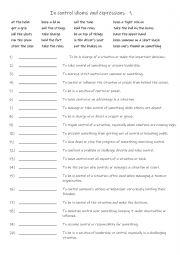
|
B1+-C1 In control idioms and expressions 1
First, students need to familiarise themselves with the 20 idioms and expressions and their meanings. Then they read the definitions to see which one is being described and write that word in the space provided Answers on page 2.
Level: intermediate
Age: 12-100
Type:
Downloads: 122
|
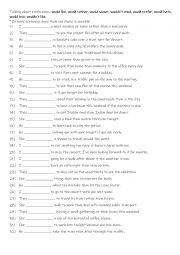
|
B1+-C1 Talking about preferences -would like, would rather, would sooner, would not mind, would prefer, would hate, would love & would not like.
Students familiarise themselves with the different ways of expressing their preferences and grammatical usage. Then they read each sentence to see which one is the most suitable to complete the gap-fill. Each form is used 4 times. Answers on page 2.
Level: intermediate
Age: 10-100
Type: worksheet
Downloads: 117
|
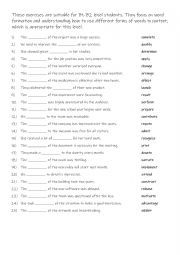
|
Word formation practise
Word formation supports more nuanced expression. Learners can tailor their language to convey specific meanings or tones by manipulating word forms (e.g., choosing between �happy� and �happiness� or �inform� and �information�).These exercises are suitable for B1-B2 level students. They focus on word formation and understanding how to use different ...
Level: intermediate
Age: 10-100
Type:
Downloads: 127
|
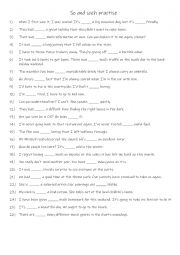
|
A2-B1 Intensifiers: so and such practise
Learning how to use "so" and "such" is important because they help students emphasise their statements and make their speech and writing more precise and expressive.Mastering "so" and "such" instead of relying on words like "very" and "really" adds variety to language, making it more dynamic and interesting. First students familiarise themselves wi...
Level: intermediate
Age: 8-100
Type:
Downloads: 130
|
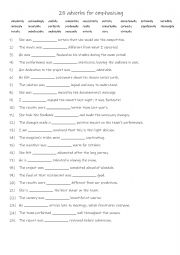
|
B2-C1 25 adverbs for emphasising
Learning adverbs for emphasis is essential because it adds precision and depth to communication, especially in English where subtle distinctions matter. Adverbs like exceptionally, profoundly, and significantly enable students to intensify adjectives or verbs, adding layers to descriptions and making them more impactful. This allows for clearer and...
Level: intermediate
Age: 10-100
Type:
Downloads: 116
|
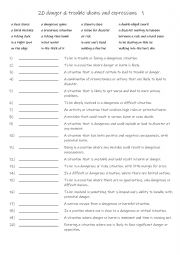
|
B1+-C1 20 danger & trouble idioms and expressions 1
Learning danger and trouble idioms offers numerous benefits. It enhances comprehension by helping students understand common expressions in everyday conversation and media. These idioms provide cultural insights, showing how native speakers view risk and challenges. They also allow students to express complex ideas concisely and vividly, making the...
Level: intermediate
Age: 12-100
Type:
Downloads: 113
|
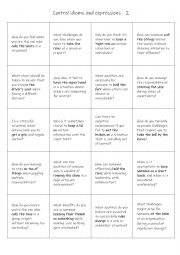
|
B1+-C1 In control idioms and expressions 2
This is a speaking reinforcement activity to supplement the other worksheet I uploaded earlier this year. Students working in pairs or small groups can either ask each other the questions or answer the question themselves.
Level: intermediate
Age: 12-100
Type:
Downloads: 121
|
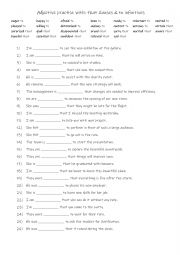
|
B1-B2 Adjective practise with that clauses & to infinitives
Students familiarise themselves with the the use of adj + that & adj + to , their use and grammatical formation. Then they read the sentences to see which adj + preposition is requires to complete the gap-fill. Answers on page 2.
Level: intermediate
Age: 10-100
Type:
Downloads: 113
|
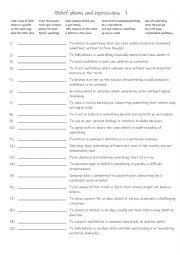
|
B1+-C1 Belief idioms and expressions 1
First, students need to familiarise themselves with the 20 idioms and expressions and their meanings. Then they read the definitions to see which one is being described and write that word in the space provided Answers on page 2.
Level: intermediate
Age: 12-100
Type:
Downloads: 114
|
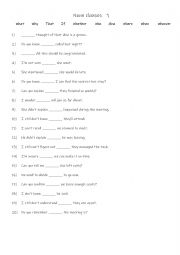
|
Noun clauses 1
Students complete the gap-fill with the correct word. Answers on page 2.
Level: elementary
Age: 7-100
Type:
Downloads: 115
|












